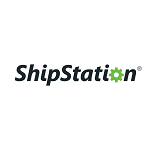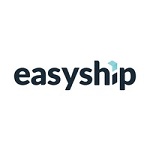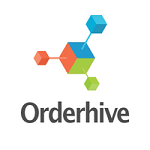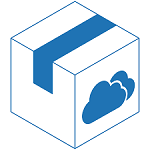This is an era of highly advanced technology that we are living in. This technology has made shopping online possible. The internet has connected people across the globe. Through technology, one can start an ecommerce business and sell to customers all over the world.
What links the seller to their shoppers? The logistics industry. Logistics are a key part of any online business. Logistic workers send the seller’s products to shoppers, and they’ve changed the way orders, raw materials, products, and inventory get managed.
 Looking for Logistics Software? Check out SoftwareSuggest’s list of best logistics software solutions.
Looking for Logistics Software? Check out SoftwareSuggest’s list of best logistics software solutions.
The time it takes for a customer to receive their order is important as it directly affects their experience. To deliver exceptional service, the demand for efficiency and speed is rising. Logistics suppliers have adopted new solutions to cope with both the rising demands and the complexity of the business. These solutions manage the flow of product delivery, making sure the right product reaches the customer within the specified time. Their service is expected to meet customers’ expectations of rapid, reliable, and affordable delivery.
Logistics companies can transport products from your store or warehouse to a parcel hub, delivery center, and the local depot.
If you have a budding startup and you are looking to partner with a logistics company, you are in the right place. We will elaborate on the details you need to understand about the industry. We will look at how these factors relate to your business and recommend the best logistics software available.
What is Logistics software?
Logistics software is an integration of information, warehousing, transportation, inventory, material handling, packaging, and security.
To gain a better understanding of how the logistics software works, you have to understand a bit about logistics management. Generally, logistics involves several things from the point of origin to the point of consumption. It includes the selection of,
- vendors,
- transportation means,
- shipping routes,
- and delivery methods.
Typically, a logistics system should include,
- transport management software,
- warehouse management,
- fleet management,
- processing orders,
- inventory control,
- managing third-party logistics service providers,
- planning supply and demand, and
- finding the right means to deliver the products and services to the end-user.
Logistics software refines the production cycle and makes it easier to access important information. It includes a wide array of operations and processes. The functionality of logistics management software includes,
- handling the customer request,
- processing purchase orders,
- inventory management,
- supplier management,
- sales, and
- distribution.
It makes product delivery very easy for small online businesses allowing them to place their delivery orders, and fulfill their customers’ expectations.
Integrated with automation it helps small businesses expand globally. With logistics software in hand, you have access to,
- diversified shipping options,
- shipping policies,
- shipping cost disclosure at point of sale,
- live package tracking, and
- timely delivery status updates.
The Benefits of Using Logistics Software for Small Businesses
Handing over the process to logistics management software will bring you immense advantages. There are several benefits of using logistics software,
1. Fast delivery
There are several factors affecting product delivery. Incorporating logistics software into your online business improves speed because you have less delay in the product shipping process. The logistics software is linked into and refers directly to the manufacturing cycle; thus, activating the order immediately.
2. Refined transportation
Transportation is a pivotal area of logistics. Logistics software will offer multiple services when it comes to transportation. The software leverages the data center to automate the process. The technology allows you to manage different transportation means at the same time. Systems also allow you to analyze the data to make relevant decisions to maximize business efficiency and minimize transportation costs.
3. Less human error
Using logistics software will help you reduce human error. It is challenging for humans to analyze huge amounts of transportation data and process it manually. It would be both difficult and time-consuming. Logistics management software will help you process the data quickly without any errors. The software seamlessly pushes forward the operations with zero chances of delays.
4. Automated functions
Automation in logistics software will make it very easy for you to operate. Using logistics software will help you with shipping routes, load planning, and tendering of loads. Everything will be automated and managed; hence, aiding you to operate your business in a more efficient and timely manner.
 You May Also Read: 8 Best (3PL) Third-party logistics companies in India
You May Also Read: 8 Best (3PL) Third-party logistics companies in India
5. Lower cost
Using logistics software will help you compare different shipping services, delivery agents, transportation methods, and delivery costs. You can opt for the one that best suits your business.
6. Provide visibility of logistics processes
All the order fulfillment processes, shipping processes, and inventory information are all visible on the logistics software. It’s effortless for both startups and customers to check the order shipping status.
7. Improve customer service
Using logistics software will help you improve your customer service by comprehensively understanding the order shipment process and speed of delivery.
8. Offer business insights and forecasts
Logistics software has immense business data. It combines numerous technologies to simplify transportation management platforms, which means they’re suitable for companies of different sizes. Big Data analytics, the Internet of Things, cloud logistics, and self-driving vehicles are the most influential technologies. All these technologies will give you special business value and help you to forecast.
How to Choose the Right Logistics Software for Small Business?
As a small business startup, you need to know how to choose the right logistics software to accommodate your business development. There are several aspects you have to take into consideration.
1. Identify your business needs
At first, you have to identify your business needs and set relevant, measurable, and attainable goals. This is to help you understand your needs and move in the right direction. When it comes to your shipping needs, you have to know;
- the demography of your customer,
- your product features,
- available transportation methods,
- customer expectation about product delivery.
You also need to be continuously improving your product shipping and customer service.
For instance, if you sell fragile items, your customers will expect to receive the products intact without any damage. You’d have to consider the transportation risks of the logistics provider in the logistics software. According to studies, 72% of customers want same-day delivery, but implementing fast shipping into your startup requires more than software alone, especially in the health or industrial niche. For this reason, you should consider working with a third-party local delivery company, like Dropoff, to build your services around your customers’ needs.”
2. The basic functions of the logistics software
When choosing the logistics software, you have to take the basic set of functions into account. Here are the key features:
1. Compatible multi-client architecture
Logistics software comes with multi-client architecture, which means it will help you to handle multiple customers. This is a must for a small business that has to process many different orders placed by different customers. It will help you deal with several customers’ orders simultaneously or orders placed by the same customer in different phases.
2. Forecasting
The ability to forecast is an integrated trait in logistics software. It will help you manage your supply chain and customer orders with proper scheduling. This will improve customer satisfaction and lower the risks of your product inventory going out of stock.
3. Inventory tracking
Logistics software integrated with inventory tracking will make it very easy for you to understand and control your inventory.
4. Financial integration
Having an inbuilt financial feature in logistics management software is a must. Key financial data, including the general ledger, account payables, and receivables, will help you manage the bookkeeping and easily record business transactions.
5. User-friendly interface
A good logistics software should be user-friendly with streamlined features for easy navigation around the major functions. The best tools are customizable to accommodate your business infrastructure and methods.
6. Customer relationship management
A CRM embedded logistics software will help customers know the delivery status of their orders. It will answer customers’ queries with relevant information and manage adjustments to delivery.
7. Bill of lading creation
Logistics software that can generate a bill of lading will make it easier to facilitate the seamless transportation for products under the consignee of the shipper and logistics company.
8. The scale of the logistics system
Typically, a small business will expand and grow. As a result, you have to take your business future into account. A scalable logistics software will adjust and adapt to your business growth rate.
9. Think about the cost
Small business startups generally have limited budgets. To save costs, compare different logistics software, and make your decision.
Our selection of these Logistics Software is based on thorough research and analysis. We have listed these softwares based on usability and satisfaction score that include features, ease of use, customer support, ratings, and number of reviews from SoftwareSuggest. Our goal is to help businesses select the right softwares that can help them optimize their business processes.
The Best Logistics Software for Small Business
1. Towbook
Towbook is a web-based towing management software with native iOS and Android apps.
It offers,
- dispatching,
- impounding,
- invoicing,
- private property, and
- accounting functions.
Companies serving individuals, private properties, body shops, motor clubs, police departments, and more can use this system.
Key features
- Integration with,
- QuickBooks and QuickBooks Online,
- Agero,
- Allstate,
- GEICO,
- Road America,
- Quest,
- NSD,
- Allied Dispatch.
2. 24/7 customer support center that offers help with sales inquiries and technical support.
3. Suitable for small and medium-sized business
2. ShippingEasy
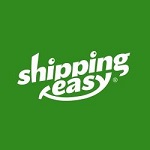 ShippingEasy has been created for online sellers and e-commerce businesses that are looking for automation. It takes care of much of the back-end fulfillment processes.
ShippingEasy has been created for online sellers and e-commerce businesses that are looking for automation. It takes care of much of the back-end fulfillment processes.
The system can,
- print accurate shipping labels,
- print labels in batches,
- apply shipping rules,
- automatically send tracking emails to customers,
- assist with the returns process,
- manage inventory.
Key features
- Integration with selling platforms to download orders and update their delivery status instantly.
2. Works with the following,
- Amazon,
- eBay,
- Shopify,
- BigCommerce,
- Volusion,
- PayPal, and many more.
3. Gives you the lowest available USPS shipping rates regardless of your shipping volume.
3. ShipStation
ShipStation is designed to facilitate shipping and fulfillment processes for online retailers. It’s a large scale, multi-carrier, multi-channel shipping solution. It powers thousands of stores and processes millions of shipping labels every month. ShipStation aims to save the merchant’s time and money by maximizing efficiencies.
Key features
- Retrieval and consolidation of order information from over 40 sales channels.
- Based on your specification, it applies a preconfigured set of shipping preferences to each order.
- It processes and prints customized shipping labels and packing slips.
- It integrates with Fulfillment by Amazon.
4. Easyship
Easyship is a cloud-based shipping platform designed for global ecommerce businesses.
It’s an all-in-one system that provides users with tools to manage domestic and international shipping. It uses more than 50 couriers and shipping providers, including DHL, UPS, USPS, and FedEx. It can store synchronized integrations and enable automatic updates for courier processes. It can also provide email tracking information to customers.
Key Features
- An ecommerce checkout plugin that gives each customer a real-time shipping rate calculation, which includes taxes and customs.
- Consists of a solution for eFulfillment and shipping for crowdfunding campaigns
- Provides a user-friendly dashboard to enable easy tracking of shipping and financial data.
5. Logitude World
Logitude World is a cloud-based freight forwarding solution for small to medium, local or international, air, ocean, and land freight forwarders. The platform covers the entire freight forwarding lifecycle from quotes and shipments to billing and collection.
Logitude World incorporates several freight forwarder modules and business tools. It features wizards and a personalized workspace so that it can be tailored for your requirements.
Key features
- End-to-end shipping management.
- Users can access dashboards, documents, email templates, and template notifications.
- Seamless migration from quote to order.
- Enhanced features include;
- shared logistics (track & trace),
- access to CRM,
- mobile access for customers,
- customization and personalization.
6. Freightview
Freightview puts all of your negotiated LTL rates into one place, allowing for easy comparison and optimal selection.
With the system, one can,
- set the schedule for pickups,
- prepare bills of lading,
- print shipping labels,
- track your shipments from pickup to delivery.
Key features
- One-time address input.
- Shipping analysis available to download as charts, graphs, reports, and spreadsheets.
- Free for the first month. $99 per month after trial.
7. Fleet Manager
Fleet Manager’s Vehicle Status feature means you can view the live status of every vehicle in your fleet. This tool provides a convenient list view of all your vehicles, showing their current location, the time of the most recent update, and the last event that was recorded.
Key Features
- Backed by live support, mobile access, and online collaboration, this system empowers your fleet with cutting-edge technology, customizable features, and 24/7 visibility.
- A fully interactive, dynamic map display powered by Google Maps helps you keep track of vehicle locations and more.
8. Pirate Ship
Pirate Ship is a cloud-based solution. It helps small businesses buy postage and print shipping labels. It works with USPS postage for domestic and international packages. Users can purchase and print shipping labels in ZPL or PDF file format and share them with customers by generating a private link.
Key features
- The system can,
- track shipments,
- produce quotes/estimates,
- process parcel shipping,
- deal with import/export,
- facilitate online payments.
2. For seamless ordering and tracking, batch shippers can connect with popular e-commerce websites including,
- Shopify,
- Etsy,
- WooCommerce,
- eBay, and more
3. Built-in email templates allow users to keep customers up to date, providing transparency across the pipeline.
4. Generate postage purchased return labels.
5. Online payments through instant bank transfer or credit cards.
9. Whip Around
Whip Around is a mobile inspection platform. It is designed to help transport businesses perform Driver Vehicle Inspection Reports quickly, efficiently, and while on the move. On top of inspection reports, Whip Around aims to ensure smooth business management as well as team safety and compliance.
Key features
- The fleet management dashboard allows users to oversee and directly control the activity in depots, with drivers, and vehicles. Users can access dashboard analytics to review business performance and manage faults.
- All recorded data can be exported easily to send to relevant parties.
- Real-time data syncing
10. Orderhive
Orderhive, a multi-channel order, shipping, inventory and stock management software, has been created for SMBs, e-commerce sellers, retailers, and wholesalers. It’s an all-in-one enterprise solution for multi-channel selling and back-end order fulfillment. It also maintains a centralized and real-time inventory tracking system. Orderhive facilitates seamless integrations,
- with leading marketplaces like Amazon, eBay, Etsy,
- with shopping carts like Shopify, Magento, WooCommerce,
- with shipping partners like FedEx, USPS, UPS, DPD,
- with accounting software like QuickBooks & Xero.
Orderhive prides itself on being competitively priced, advanced SaaS-based solution. It has successfully served 2500+ clients (B2B & B2C) of all sizes and categories across the globe.
Key features
- Highly scalable, enabling clients to meet current and future needs.
- Great customer support available 24/7.
11. PeopleSoft by Oracle
Oracle’s PeopleSoft software comprises of a host of features that were developed to provide actionable insights to help warehouses, manufacturers, and retailers. The system uses fully customizable software that can be tailor-made to fit your specific industry. PeopleSoft is user-friendly and easy to master.
Key features
- Provides on-demand, simplified analytics.
- Formal training available through Oracle.
- App strategy support.
12. CartonCloud
CartonCloud, a transport (TMS) and warehouse management system (WMS), is designed for SMBs within the 3PL industry. It helps simplify complex logistics for organizations which store, pick, pack, and deliver goods on behalf of their clients. Orders can be imported automatically, invoicing is automated, and the client has complete visibility. Drivers can capture signatures, record issues, and collect cash on delivery (COD) with native mobile apps for Android and iOS. Warehouse staff can use the software to scan, pick, and pack orders.
Key features
- Clients can automatically create jobs by directly emailing a spreadsheet.
- Stock reporting.
- The bulk allocation feature allows users to automatically allocate multiple jobs based on postcodes and suburbs, with the ability to search across all scheduled consignments.
Chirantan Patel is the Product Manager at Softwaresuggest & Callhippo, an Inc. 275 company that researches and analyzes software to educate, advise, and connect buyers and sellers of business technology.


